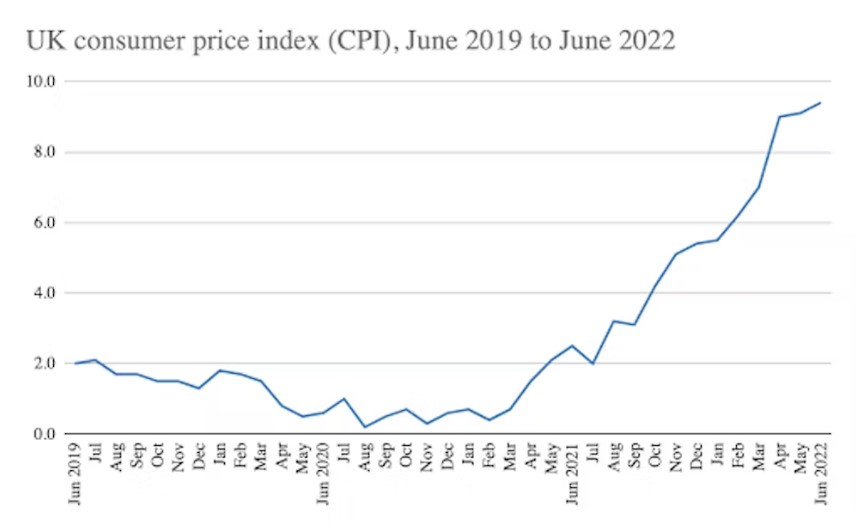We have seen plenty of comparisons to the 1970s recently, but two things could make today’s situation even worse. Inflation has not built gradually, but will have gone from zero to double digits in less than 18 months. This sudden acceleration has left people’s incomes far behind. Secondly, the course of this crisis has been highly unpredictable, with forecasts constantly being revised upwards. This creates the risk that any response will be out of date by the time it is implemented.
Rate of UK inflation, 2019-2022

Change to UK consumer price index (CPI) between June 2019 and June 2022. Office of National Statistics
This crisis is unlikely to be resolved soon, particularly as global energy costs continue to have large and highly unpredictable impacts on people’s finances. To address it properly, the government needs to develop a clear policy about how to respond to a constantly changing situation.
I experienced this volatility as an analyst when I responded to a request from former prime minister and chancellor Gordon Brown to assess the effectiveness of the government support package announced in May. It is still in the process of implementation but it gives a seemingly generous £1,200 a year to the worst off families.
As my resulting report shows, even at the time it was announced, the package fell short of compensating people on low incomes. These households have experienced the combined blows of last October’s £1,000-a-year cut in universal credit, April’s uprating of benefits by only 3% when inflation was 9%, and the £800 increase in fuel bills that was forecast last May for this October. Under these circumstances, a family with two children would be around £1,600 worse off overall, an significant deficit for those already struggling to make ends meet.
Continued…

To read the full article by Professor Donald Hirsch, visit the Conversation.
ENDS
